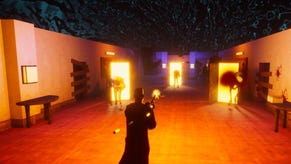Cerny: It's hard to spend $80m "in an efficient manner"
Physical media is a must, as new business models won't work on consoles, says veteran designer
Many high-budget console games are wasting money on undefined product that takes too long to create, according to game designer Mark Cerny.
Expanding on his comments at DICE last week where he said that now is the time to reduce spiralling costs, Cerny, who has worked on major Sony properties including Jak & Daxter, Killzone and Resistance, told GamesIndustry.biz that physical media sales are still essential to the console market, as new business models such as episodic or micro-transactions just won't work for such products.
"There has been a number of highly-publicised titles that have cost $70-80 million. It is rather hard to spend that money in an efficient fashion," he said in an exclusive interview.
"What typically happens when you're up in that budget range is that you are not quite sure what sort of game you're making. And so you have a seven year development period, and it changes, and your burn rate is very high because you have a large team. Those budgets can come down much more easily because there's a high degree of inefficiency built into them.
"Something like God of War III is a bit trickier because that has been revealed to have cost in the neighbourhood of $40 million by the director of the studio, and to try and take something like that and reduce it is very, very tricky. It's an epic experience, it's already only a single player experience. Presumably, we see how everything is growing, these experiences grow broader in the future."
Part of the problem is that once a game becomes successful, it's expected that a sequel will cost more, pushing spend much higher in pursuit of innovation.
"Bad sequels should be cheaper. Good sequels require trying something new," he said. "You have the foundation, it's the springboard for something that people have never seen before. Uncharted 2 was game of the year because it added the multiplayer. It felt very fresh. If it had been the same single-player experience again it may have not seen its Metacritic go up, it would have gone down. In my opinion it wouldn't have been game of the year.
"It's not trivial to reduce you budget by any means when making a sequel."
Despite the high-end costs, the console business is still viable, and Cerny believes that even start-ups can make an impact on home machines if they are willing to work up through mobile and handheld routes.
"Five years ago the route was this - you did portable then you did home. Portable was so small it was just you and three of your buddies making a game and if that went well you grow to do home console. Today you've got one more rung in that ladder because you can do your own iPad or iPhone game and if you want to go up from there you can go to the modern portables, which still take a significant team size.
"I'm sure you saw Uncharted for NGP - that team size is analogous to a PlayStation 2 team size. You really can work your way up to the very large teams through successive successes."
But blockbuster games need to be sold the old fashioned way - on a disc and through High Street retailers, said Cerny.
"I've had such a great time in consumer games because the products stay sold. We didn't have marketing back then. Now once the game is sold my responsibility is done.
"The economic picture might change enough that I can't quite live in this happy world 100 per cent of the time anymore. I'm a little bit afraid for David Cage and Quantic Dream. If in-game currency becomes a must - I don't think it will - I just don't see how it works with a neo-noir immersive world. I think physical media is a must. I'm suspicious of episodic content. Somehow it's difficult to get people into that mode."
The full interview with Mark Cerny, where he also discusses Sony's new handheld and monetisation of arcade machines as "the ninth circle of hell", can be read here.








